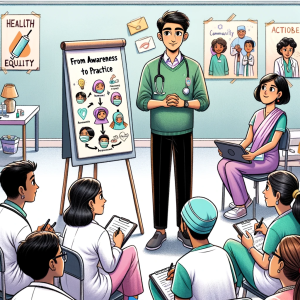
The Garrett Lee Smith Memorial Act: A Comprehensive Approach to Youth Suicide Prevention
In response to the escalating public health crisis of youth suicide in the United States, the Garrett Lee Smith Memorial Act (GLSMA) was introduced as a groundbreaking initiative. This act, inspired by the personal tragedy of Senator Gordon Smith, who lost his son to suicide, has been a pivotal force in suicide prevention efforts since its inception in 2004. The Garrett Lee Smith Memorial Act: A Description and Review of the Suicide Prevention Initiative offers an in-depth analysis of this significant legislation.
The Alarming Reality of Youth Suicide
The troubling statistics around youth suicide underscores the need for such an initiative. As the second leading cause of death for youths aged 12–17 and the third for young adults aged 18–24, the issue of suicide presents a major challenge to public health. The rates have shown an alarming increase, nearly doubling for youths aged 12–17 and rising by 42% for young adults aged 18–24 between 2007 and 2020. These figures highlight the urgency of addressing this public health concern comprehensively.
Strategy and Implementation of GLSMA
The GLSMA marks a significant shift in suicide prevention, providing funds for community-based, comprehensive suicide prevention programs. These programs include a variety of activities such as education, training, screening, crisis hotlines, and community partnerships customized to meet the unique needs of different communities and demographics.
Impact and Outcomes of GLSMA Initiatives
Communities implementing GLSMA-backed suicide prevention activities have reported lower rates of suicide attempts and deaths among young people. The benefits of these programs are more pronounced with ongoing implementation over the years and are especially significant in less densely populated areas. Importantly, cost analyses indicate that the savings in healthcare costs by reducing emergency department visits and hospitalizations far outweigh the program’s expenses.
Challenges in Evaluating the GLSMA’s Efficacy
Despite the encouraging outcomes, challenges exist in conclusively determining the causal effects of GLS due to the diversity of community suicide prevention programs and the lack of randomized trials. However, the correlation between GLS interventions and improved public health outcomes is strong and suggests the effectiveness of these programs.
Broader Public Health Implications
The GLSMA represents a model for public health response to suicide, emphasizing increased awareness, engagement with affected individuals, development of targeted interventions, and improved access to mental health services. Focusing on high-risk and underserved groups ensures that the strategies are inclusive and culturally appropriate.
The Role of GLSMA in Future Public Health Practices
For future public health practice, the GLSMA is a template for how targeted, community-based interventions can profoundly impact public health challenges. Its approach to youth suicide through education, intervention, and continuous evaluation offers lessons for dealing with other public health crises.
Conclusion: The Legacy and Future of the GLSMA
The Garrett Lee Smith Memorial Act, while not implemented nationwide, has shown significant success in communities where it has been applied. Its comprehensive nature and focus on diverse communities set a precedent for tackling public health issues. The ongoing evaluation and adaptation of the GLSMA will continue to inform and guide efforts in reducing suicide rates among young Americans, underlining the importance of sustained effort and consistent funding in public health initiatives.
Stay Up to Date with Current Public Health News
Your key to unlocking the power of public health knowledge awaits! ‘This Week in Public Health’ is not just a newsletter; it’s a catalyst for informed action. With a focus on cutting-edge research, community health successes, and advocacy insights, each issue empowers you to make a tangible impact. Subscribe for free and turn information into action today!



